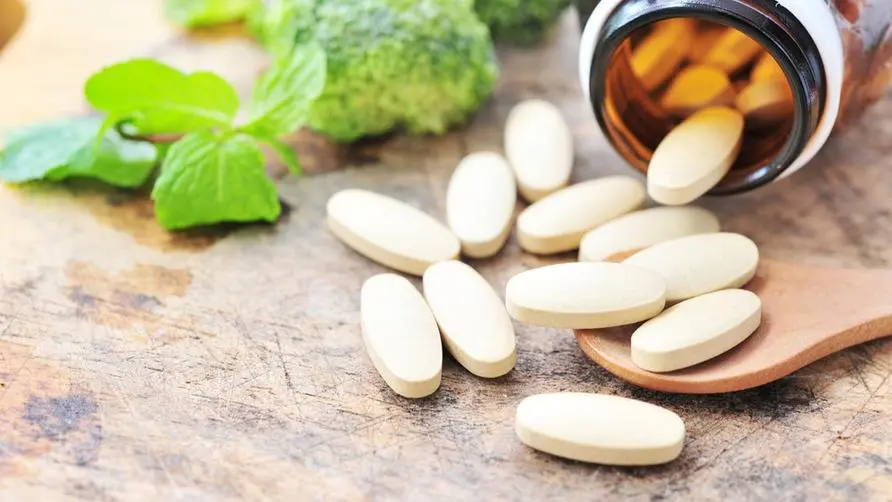Don't just apply facial masks and lotions when taking care of your skin! Expert: Take in more "8 major nutrients" to fight aging and remove wrinkles

To fight skin aging, don’t you necessarily need to use skin care products? Julia Tzu, an authority on dermatology in the United States and a doctor of medicine at the University of Miami, said that nutrients or foods containing “antioxidant” effects have certain effects on reducing skin aging, skin cancer or cell damage. In addition to diligent maintenance through skin care products with moisturizing effects, Dr. Tzu pointed out that a correct daily diet can also help revitalize the skin and make the visual age appear younger.
Dr. Tzu lists nutrients and foods with antioxidant properties as follows:
1. Vitamin C
Previous literature has pointed out that vitamin C is a powerful antioxidant that helps strengthen the immune system and maintains the health and integrity of the skin. According to research in “Nutrients”, vitamin C is one of the key factors in the production of skin collagen and preventing ultraviolet rays from penetrating the skin. It can reduce dark spots by preventing skin pigmentation. Guava, kiwi, orange, longan and other fruits are rich in complete vitamin C.
2. Vitamin E
Vitamin E is a fat-soluble antioxidant that protects cell membranes from oxidation. Research in “Dermatologic Therapy” shows that vitamin E helps maintain the integrity of the skin’s lipid composition and reduces the risk of autoimmune skin diseases, such as eczema or psoriasis. Vitamin E is commonly found in vegetable oils, nuts, beans, and dark green vegetables.
3. Vitamin D
Vitamin D is essential for maintaining bone health and strengthening the immune system. This nutrient also helps protect the skin from light damage and inflammation. According to guidelines published by the International Journal of Molecular Sciences, vitamin D is beneficial to the growth of “keratinocytes,” which are responsible for healing skin lesions and repairing damaged tissue. It can be ingested through sun exposure or eating dried mushrooms, oily fish, cheese or egg yolks.
4. Vitamin B3
Vitamin B3 helps regulate blood lipid levels, lower blood pressure, enhance brain function and increase energy levels. It is also an important antioxidant that promotes healthy skin. The Journal of Cosmetic Dermatology states that vitamin B3 helps reduce hyperpigmentation and redness, strengthens the skin barrier and prevents skin inflammation. Vitamin B3 is commonly found in germ, cheese, fish, red meat and other foods.
5. Vitamin A
Vitamin A, as a strong antioxidant, can prevent harmful ultraviolet radiation and help improve wrinkles and skin sagging. Vitamin A plays an important role in reducing the risk of skin cancer, acne and psoriasis, according to a review published in the journal Cell. Pork liver, cabbage, mango and watermelon are rich in vitamin A.
6. Astaxanthin
Astaxanthin is a carotenoid naturally produced by many bacteria, microalgae, and yeast; according to a review published in the Journal of Cosmetic Dermatology, astaxanthin has certain effects in preventing skin diseases and accelerating its repair process. Effect. Research shows that astaxanthin, combined with topical and oral doses, can effectively lock in skin moisture and smooth fine lines.
7. Resveratrol
Resveratrol is a polyphenolic antioxidant found primarily in red grapes, red wine, grape juice, peanuts, cocoa and berries. Research in “Pharmaceutics” points out that resveratrol is not only beneficial to cardiovascular health, but also prevents skin damage, skin allergies and skin cancer caused by light, especially when taken together with food or dietary supplements, the effect may be more significant .
8. Green tea polyphenols
One of the most widely consumed beverages worldwide, green tea is a rich source of antioxidants with powerful anti-wrinkle effects. “Nutrients” shows that the polyphenols in green tea can neutralize free radicals, increase the production rate of collagen and elastin fibers, and reduce the levels of collagen-degrading enzymes in the skin. In addition, catechins have the effect of protecting blood vessels and controlling blood sugar, making it a healthy source of drinks for those who want to lose weight.
Although the above nutrients may have certain benefits for the skin, Dr. Tzu still reminds the public that excessive intake of any food may be harmful to the body. It is recommended that daily eating habits be based on the principle of moderation and balance. You can consult a nutritionist for confirmation before eating. If you have severe allergies or other symptoms after consuming the above nutrients, you must consult a dermatologist immediately to avoid worsening of symptoms.
Source:
Plant-Derived Antioxidants: Significance in Skin Health and the Aging Process
The Roles of Vitamin C in Skin Health
Vitamin E supplementation in inflammatory skin diseases
The Impact of Vitamin D on Skin Aging
Retinoic Acid and Its Derivatives in Skin
[Tide Level Certification] Actual test score! Dermatologist × nurse × nutritionist first-hand experience
Professional white robe appraisal report: Xiweishi Glacier Snow Kite Youth Essence
Further reading:





